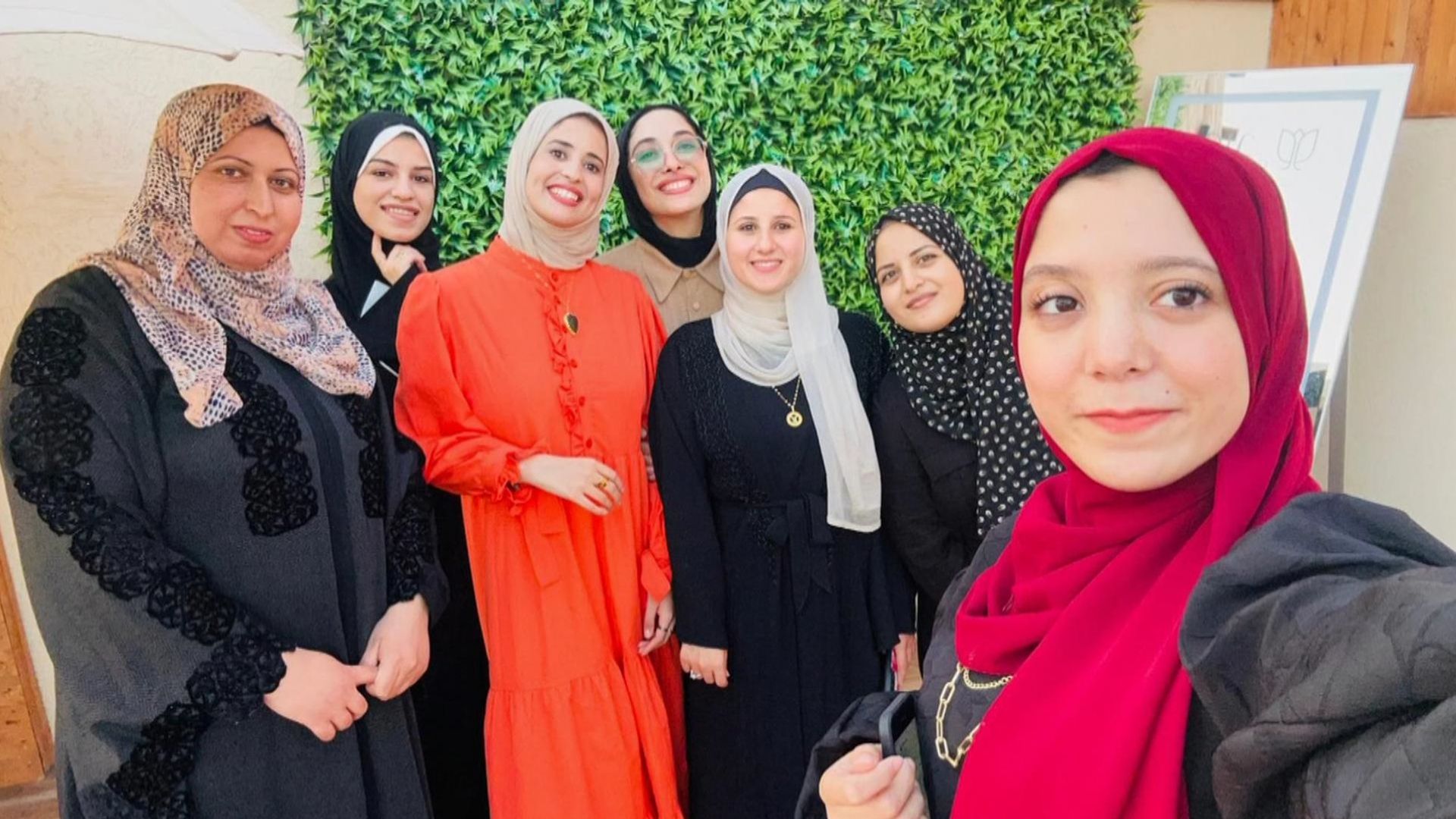Dunya is holding a photo. Seven smiling faces look back at her, a snapshot of the lives of friends who worked and socialised with each other.
She is in the middle of the picture, beaming. Now, her smile has gone. This photo was taken just over a year ago, at a birthday party towards the end of September 2023. Just days before the world changed.
The seven women all worked on the nursing staff at al Shifa Hospital in Gaza City, the biggest medical complex in Gaza but also a site suspected by Israel of housing a Hamas command centre. When the war started, al Shifa was attacked.
Two of the women in the photo are dead.
Please use Chrome browser for a more accessible video player
Rawan Abu Zbeidah, who is second from the left, wearing a black headdress, was killed on 11 November, along with members of her family. She was pregnant. Anwaar Yassin, who is third from the right, was killed at the start of December, along with her husband and children, in Nuseirat, central Gaza.
All the other women in the photograph have been displaced and dispersed.
“That last time we gathered together was a sweet day,” Dunya says. “It was beautiful. A week before 7 October. We never imagined it would be our last. All that’s left now are the pictures we have together, our memories. Our lives just disappeared.”
Dunya fled Gaza City and now works further south at a hospital in Deir al Balah.
“Currently we’re scattered in different places,” she says of her friends who are still alive. “One of us is in the north, there’s no way for me to reach her. She can’t come here, I can’t go there.
“A few of them are displaced in the south. We try our best to keep in touch. We try to see each other if it’s possible. We get on video calls, we try to stay as close as possible.”
‘We can’t bring ourselves to accept this reality of losing her’
Gaza is a place of ruined buildings and shattered lives.
In Gaza City, Houssam is sheltering in the ruined structure of Abdallah Al Dayhan School, where his young daughter, Dareen, used to study. The school has been battered, but it’s still just about standing, just about safe.
Dareen fled to the south in the early stages of the war, assured the city of Khan Younis would be safer. Instead, she was killed, along with four of her relatives, in an Israeli air strike.
Houssam, who stayed in Gaza City along with Dareen’s brothers, is haunted, his eyes hollow.
“Dareen was like any other teenager,” he says. “She was safe and she had ambitions. She dreamed of graduating to become a doctor. We can’t bring ourselves to accept this reality of losing her. We wanted to be there for her.”
Read more:
Timeline of a year of war
The 97 hostages who haven’t returned
Not far away, Dareen’s former teacher, Roula, also shelters. She used to live across the road, but her home was blown up.
“It’s a challenge for students who want to learn,” she says. “I lost a lot. I lost my home, my family. Some of my students who are very dear to me.“
She still teaches local children and tries to preserve a sense of normality.
But how to be normal when the world outside is rubble?
“There is no safe space for students,” she says. “Schools have been targeted but we have no choice but to carry on teaching, despite being in a constant sense of fear. This is no environment for learning – we have no chairs, no tables, no whiteboard. No classroom.”
A year on from the Hamas attacks on 7 October and the outbreak of war, Gaza is a shellshocked place full of shellshocked people – a land of ruined buildings and wrecked lives.







